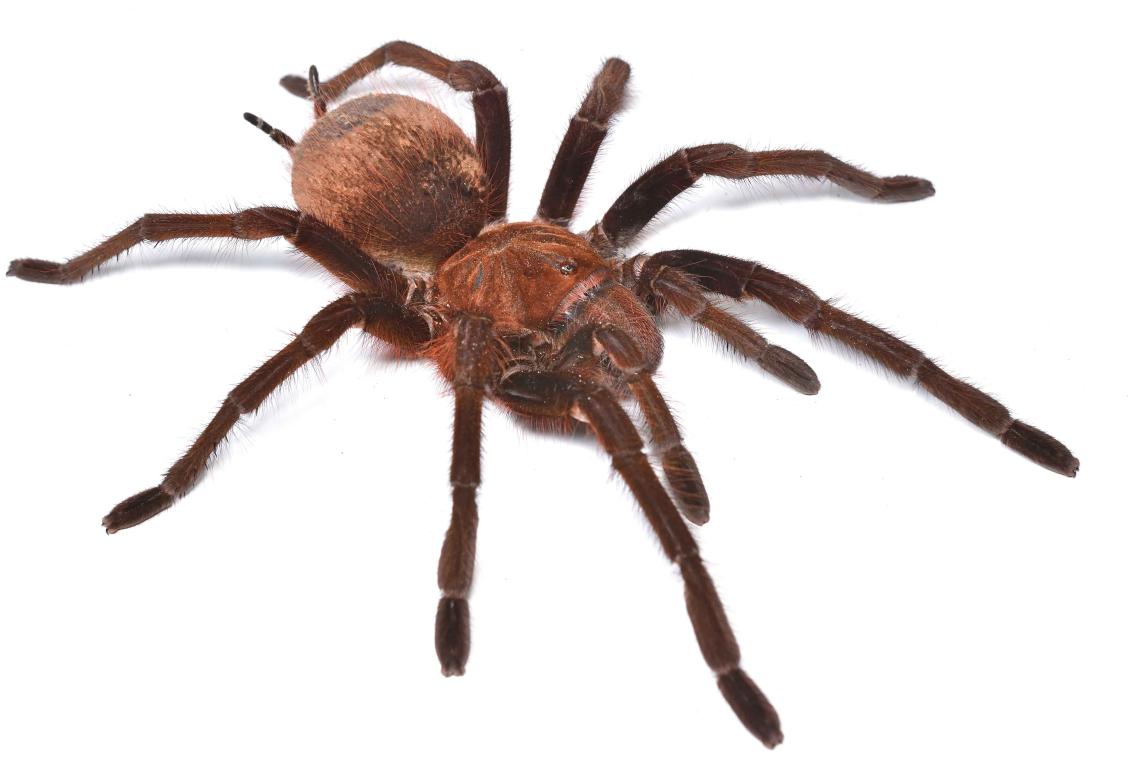Giant spider provides promise of pain relief for irritable bowel syndrome

Molecules from the venom of one of the world’s largest spiders could help University of Queensland-led researchers tailor pain blockers for people with irritable bowel syndrome (IBS).
Researchers screened 28 spiders, with the venom of the Venezuelan Pinkfoot Goliath tarantula – which has a leg-span of up to 30 centimetres – showing the most promise.
The team led by Professor Richard Lewis from UQ’s Institute for Molecular Bioscience in collaboration with Flinders University’s Professor Stuart Brierley and the South Australian Health and Medical Research Institute hopes to find effective pain relief for chronic intestinal pain.
“All pains are complex but gut pain is particularly challenging to treat, and affects around 20 per cent of the world’s population,” Professor Lewis said.
“Current drugs are failing to produce effective pain relief in many patients before side effects limit the dose that can be administered.”
Professor Brierley said IBS and other gastrointestinal and bladder disorders cause chronic visceral pain – pain which affects the internal organs.
“Internal organs have a complex network of sensory nerves that have a wide array of voltage-gated ion channels and receptors to detect stimuli,” he said.
“The hypersensitivity of these nerves in disease often contributes to the development of pain.”
Voltage-gated ion channels open and close in response to changes across the cell membrane, with their dysfunction identified as a cause of chronic visceral pain.
Professor Lewis said spider venoms contain hundreds of mini-proteins known as peptides that can inhibit voltage-gated ion channels from opening.
“Unfortunately these peptides aren't completely selective for pain targets,” he said.
“Our goal was to find more specialised pain blockers that are potent and target pain sodium channels for chronic visceral pain, but not those that are active in the heart and other channels.”
The team found two peptides isolated from the tarantula venom inhibited the most important ion channels underlying pain, with one particularly potent at reducing the sensory nerves of the bladder and colon and nearly stopping chronic visceral pain in a model of IBS.
“We now have a really strong understanding of the structure and function of these spider venom peptides,” Professor Lewis said.
“The highly selective ones have potential as treatments for pain, while others are useful as new research tools to allow us to understand the underlying drivers of pain in different diseases.”
The research evolved from 15 years of studying the potential of medicines developed from venoms, was published in the journal Pain (DOI:10.1097/j.pain.0000000000002041) and funded by the National Health and Medical Research Council.
Media: Professor Richard Lewis, r.lewis@uq.edu.au, +61 (0)4 0037 2088; IMB Communications, communications@imb.uq.edu.au, +61 (0)4 0566 1856; Professor Stuart Brierley, stuart.brierley@flinders.edu.au, +61 8128 4848; Flinders Communications, Megan Andrews, megan.andrews@flinders.edu.au, SAHMRI Communications, Pete McDonald, Pete.Mcdonald@sahmri.com.
Related articles

Sunlight-powered breakthrough turns methane into valuable ethylene

Australia needs doctors – so why are hundreds of qualified international physicians unable to work?
Media contact
UQ Communications
communications@uq.edu.au
+61 429 056 139

